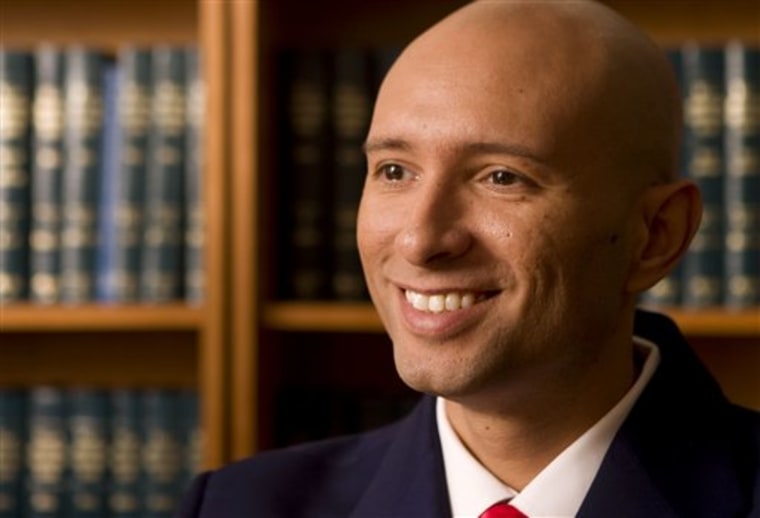Some members of the civilian jury that acquitted a former Marine accused of war crimes in Iraq say they weren't qualified to judge actions in combat, and military and legal experts said the case raises serious questions about whether federal prosecutors should even pursue such cases.
"I don't think we had any business doing that," said juror Nicole Peters, who wiped away tears during Thursday's verdict and later hugged the defendant, Jose Luis Nazario Jr. "I thought it was unfair to us and to him."
Some jurors hugged and shook hands with Nazario, his mother and his attorneys after Nazario was cleared in the killing of four unarmed Iraqi detainees.
"It's a very reasoned response from those jurors because they apparently recognized this was not something they were well-suited to determine," said Gary Solis, a former Marine Corps prosecutor and judge who teaches law of war at Georgetown University Law Center.
"In my view, it's going to cause the U.S. attorneys to give a second thought to prosecuting soldiers for acts that occurred in combat," he said.
John D. Hutson, dean of the Franklin Pierce Law Center and a retired Navy rear admiral, countered that jurors routinely sit in judgment of actions they have never experienced.
"How many jurors have been involved in a domestic dispute in which a person was killed. None. You don't put those people on a jury," he said.
Nazario, 28, of Riverside, Calif., was the first military veteran brought to trial under the Military Extraterritorial Jurisdiction Act, which was written in 2000 and amended in 2004 primarily to allow prosecution of civilian contractors who commit crimes while working for the U.S. overseas.
It also allows the prosecution of military dependents and those who have completed their term of military service.
One author of the act said it might be time to take another look.
"I don't think any of us who passed that legislation thought we were now going to have people discharged from the military being charged in federal court," said Sen. Jeff Sessions, R-Ala.
'Problems with witnesses and evidence'
"There are all kinds of problems with witnesses and evidence and those kinds of things, in addition to the fact that military persons are operating in an environment quite different from the normal street crime we see," he said.
The evidence against Nazario included testimony by former comrades who heard gunshots but did not see the shooting that occurred on Nov. 9, 2004, during house-to-house fighting in Fallujah during "Operation Phantom Fury." The prosecution had no bodies, no identities, no crime scene and no forensic evidence to present to the jury.
Some jurors felt there was insufficient evidence to convict Nazario. Juror Ted Grinell said there weren't any "real witnesses" to the alleged shootings.
Laurie Levenson, a professor at Loyola Law School and a former federal prosecutor, said it might not be prudent to judge the effectiveness of the Military Extraterritorial Jurisdiction Act based on just one verdict.
"But it's worth taking a closer look at whether civilian juries will ever have the confidence to believe they can sit in judgment in these cases," she said.
Solis and David Glazier, an associate professor at Loyola Law School, said Congress should perhaps consider amending the Uniform Code of Military Justice to allow service members who have completed their term of service to be recalled to duty to face prosecutions.
"The average American is reluctant to second-guess the conduct of a service person in a combat zone," Glazier said.
Why ex-Marine went free in Iraqi killings
Jurors wept and embraced former Marine Jose Luis Nazario Jr. after acquitting him of voluntary manslaughter in the killings of unarmed Iraqi detainees during a fierce 2004 battle.

/ Source: The Associated Press